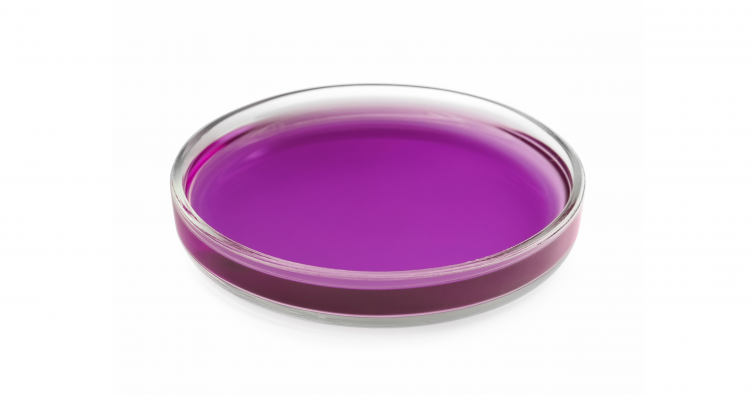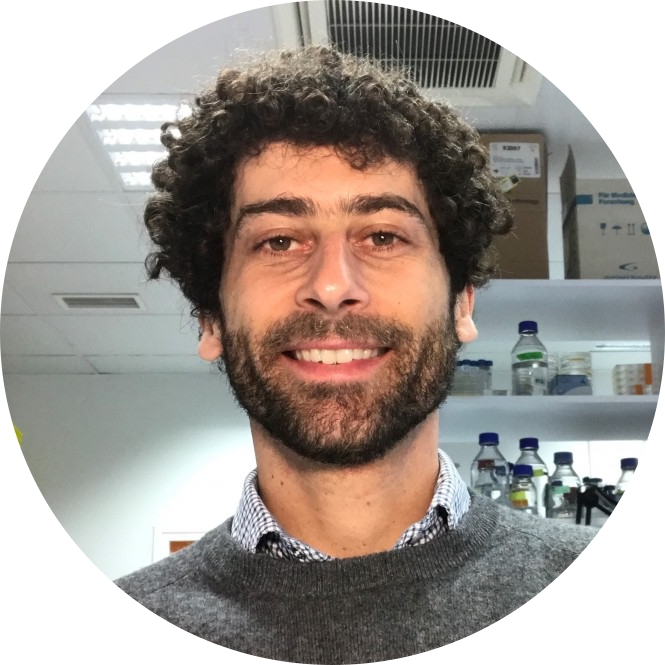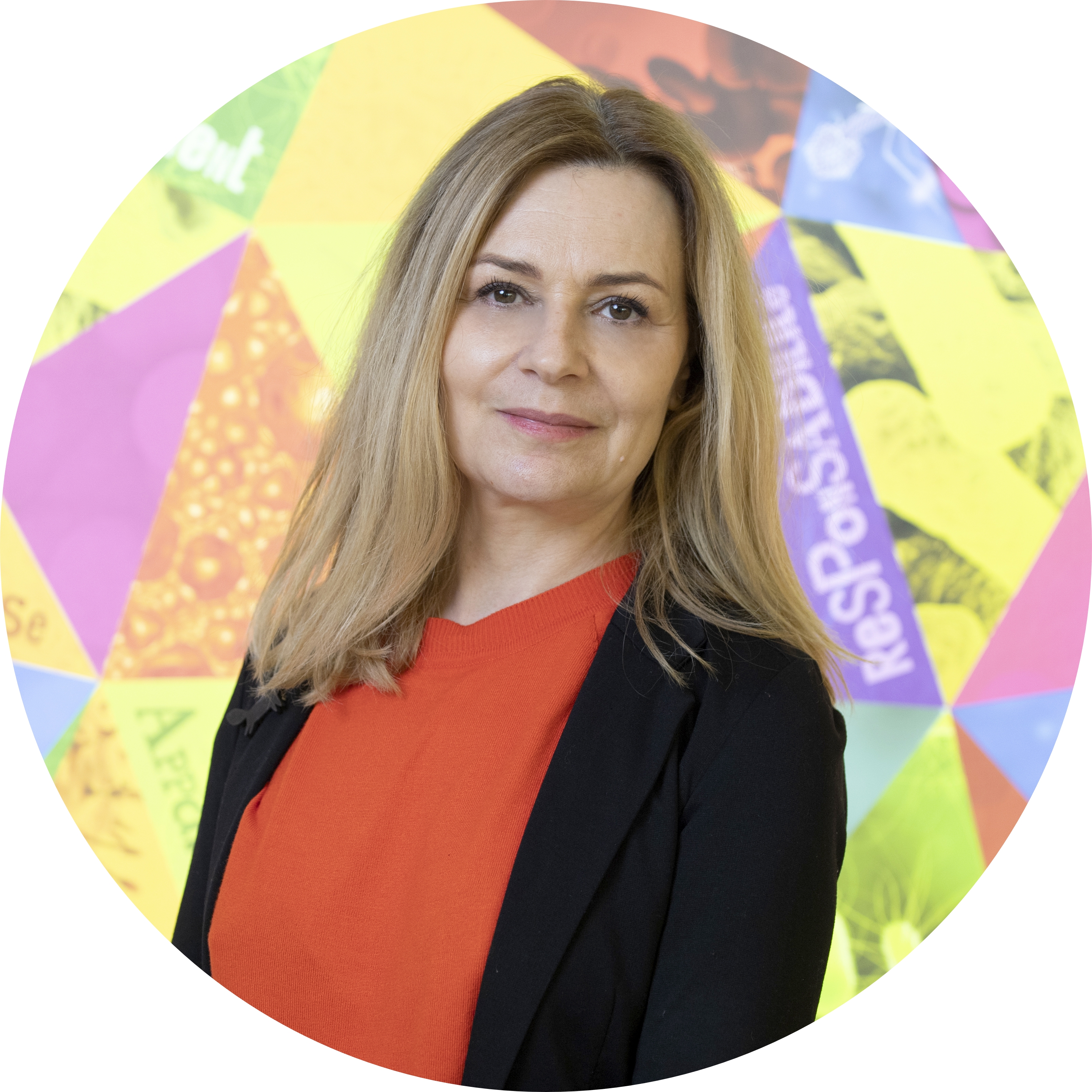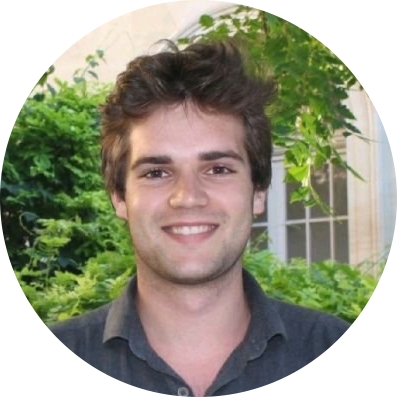
 award
award
Institut Pasteur scientists recognized
- Nicola Festuccia and Anne-Lise Giraud, recipients of 2025 CNRS medals
Each year, the CNRS recognizes the achievements of its talented researchers, engineers, technicians and administrative staff by awarding bronze and silver medals. In 2025, the CNRS awarded 46 bronze and 24 silver medals as an important mark of recognition for those whose work is advancing science.
• Nicola Festuccia, recipient of a bronze medal
 The bronze medal is given to researchers in the early stages of their career for research that has established them as specialists in their field. The Bronze Medal is a way for the CNRS to encourage researchers to continue work that has met with initial success and already produced fruitful results. This year's recipients include Nicola Festuccia, a scientist in the Epigenomics, Proliferation and the Identity of Cells Unit led by Pablo Navarro Gil. Nicola Festuccia, a specialist in embryonic development, studies how stem cells retain their ability to become any type of cell in the body – or conversely how they gradually commit to specialization. In particular, he studied the impact of cell division on this balance between maintenance or change of cell identity. He is fascinated by totipotency, the initial state when the cell can still become any cell type, and is exploring the transitions that lead from totipotency to pluripotency, then to specialization in mice. His research has highlighted the key role of two genes, ESRRB and NR5A2, which encode transcription factors that orchestrate cell fate determination. His basic research is guided by curiosity and a desire to understand the mechanisms underpinning the living world. It is a first potential step towards the medicine of the future.
The bronze medal is given to researchers in the early stages of their career for research that has established them as specialists in their field. The Bronze Medal is a way for the CNRS to encourage researchers to continue work that has met with initial success and already produced fruitful results. This year's recipients include Nicola Festuccia, a scientist in the Epigenomics, Proliferation and the Identity of Cells Unit led by Pablo Navarro Gil. Nicola Festuccia, a specialist in embryonic development, studies how stem cells retain their ability to become any type of cell in the body – or conversely how they gradually commit to specialization. In particular, he studied the impact of cell division on this balance between maintenance or change of cell identity. He is fascinated by totipotency, the initial state when the cell can still become any cell type, and is exploring the transitions that lead from totipotency to pluripotency, then to specialization in mice. His research has highlighted the key role of two genes, ESRRB and NR5A2, which encode transcription factors that orchestrate cell fate determination. His basic research is guided by curiosity and a desire to understand the mechanisms underpinning the living world. It is a first potential step towards the medicine of the future.
• Anne-Lise Giraud, recipient of a silver medal
 The silver medal is awarded to scientists for the originality, quality and importance of research which has gained national and international recognition. Anne-Lise Giraud, Director of the Hearing Institute and the reConnect University Hospital Institute (reConnect IHU), is one of this year's 24 recipients. She explores the intricate brain mechanisms underpinning language. As a specialist in neuronal oscillations, she has shown that the brain processes speech based on internal rhythms that divide, encode and synchronize sounds to extract meaning. Her research, which combines electroencephalography and magnetoencephalography, computational modeling and clinical practice, has given us a new understanding of the language difficulties observed in autism and dyslexia. At the Hearing Institute and the reConnect IHU, she is currently developing innovative rehabilitation strategies based on the use of targeted neurostimulation and brain-machine interfaces. Whether decoding inner speech or restoring reading ability in dyslexic children, her research covers a wide trajectory ranging from neurons to care, always based on the same fundamental question: how does the brain turn sound into meaning?
The silver medal is awarded to scientists for the originality, quality and importance of research which has gained national and international recognition. Anne-Lise Giraud, Director of the Hearing Institute and the reConnect University Hospital Institute (reConnect IHU), is one of this year's 24 recipients. She explores the intricate brain mechanisms underpinning language. As a specialist in neuronal oscillations, she has shown that the brain processes speech based on internal rhythms that divide, encode and synchronize sounds to extract meaning. Her research, which combines electroencephalography and magnetoencephalography, computational modeling and clinical practice, has given us a new understanding of the language difficulties observed in autism and dyslexia. At the Hearing Institute and the reConnect IHU, she is currently developing innovative rehabilitation strategies based on the use of targeted neurostimulation and brain-machine interfaces. Whether decoding inner speech or restoring reading ability in dyslexic children, her research covers a wide trajectory ranging from neurons to care, always based on the same fundamental question: how does the brain turn sound into meaning?
- Antonin Verdier, laureate of the Thesis Award from the French Neuroscience Society
 In 2025, the French Neuroscience Society handed out three Thesis Awards to early career scientists for their doctoral research. The three recipients include Antonin Verdier, a PhD student in the Neural Codes and Dynamics Unit led by Brice Bathellier.
In 2025, the French Neuroscience Society handed out three Thesis Awards to early career scientists for their doctoral research. The three recipients include Antonin Verdier, a PhD student in the Neural Codes and Dynamics Unit led by Brice Bathellier.
Find out about Antonin Verdier's research in this video
- Braincoder project, winner of the 2025 Béatrice Denys Foundation Prize
The Béatrice Denys Foundation, established in 2013 in tribute to Béatrice Denys, the co-founder of the Turenne Group's Health division who died in 2012, pursues a twofold objective: to support future health start-ups and continue the philanthropic work begun in 2006 by Béatrice Denys within the Fondation pour la Recherche Médicale.
On June 6, the Turenne Group awarded the 26th Béatrice Denys Prize to the Braincoder project, led by Brice Bathellier,Charly Lamothe, Nicolas Le Goff and Line Holtzer , for the launch of a start-up that aims to develop a high-density brain implant to restore hearing in people with profound deafness, especially those who are not eligible for cochlear implants. By combining precision stimulation of the auditory region in the brain via flexible electrodes with a sound encoding algorithm based on artificial intelligence, the mechanism should deliver sound perception that is much more accurate and detailed than current solutions. More than 50 million people have profound deafness, and more than 100,000 of them are not eligible for cochlear implants.
"Braincoder aims to restore auditory perception by directly stimulating the brain using an AI algorithm that converts sound information into the language of neurons. We think this implant will be much more effective in restoring hearing than current systems. The award from the Béatrice Denys Foundation will enable us to embark on the production of a prototype of our new implant by recruiting a manager to supervise the technical aspects and the fundraising side," explains Brice Bathellier, Head of the Neural Codes and Dynamics Unit.